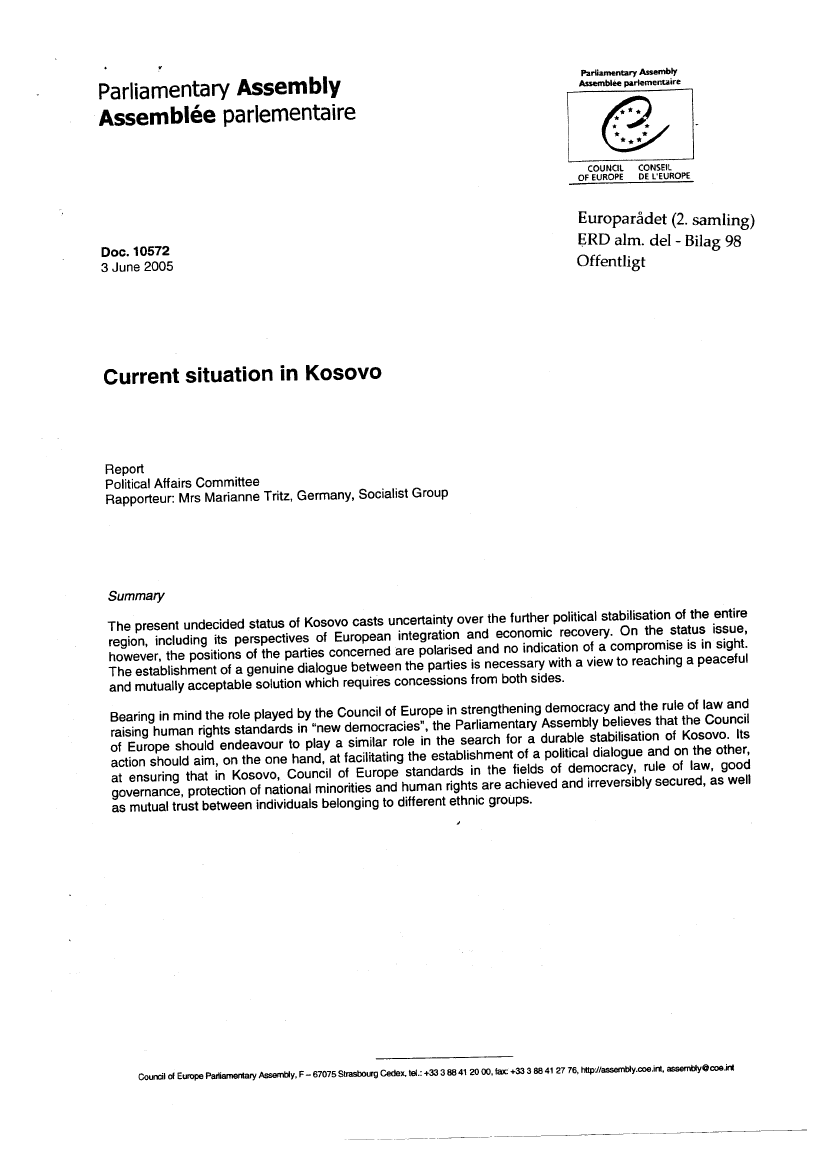
Parliamentary Assembly
Assemble parlementaire
Parliamentary Assembly
Assemblee parlementaire
COUNCIL
OF EUROPE
CONSEIL
DE L'EUROPE
Doc. 10572
3 June 2005
Europarådet (2. samling)
ERD alm. del - Bilag 98
Offentligt
Current situation in
Kosovo
Report
Political Affairs Committee
p
Rapporteur: Mrs Marianne Tritz, Germany, Socialist Grou
Summary
ty over the further political stabilisation of the entire
The present undecided status of Kosovo casts uncertain
n and economic recovery. On the status issue,
region, including its perspectives of European integratio
no indication of a compromise is in sight.
the positions of the parties concerned are polarised and
however,
is necessary with a view to reaching a peaceful
establishment of a genuine dialogue between the parties
The
ns from both sides.
and mutually acceptable solution which requires concessio
in strengthening democracy and the rule of law and
Bearing in mind the role played by the Council of Europe
amentary Assembly believes that the Council
g human rights standards in "new democracies", the Parli
raisin
in the search for a durable stabilisation of Kosovo. Its
of Europe should endeavour to play a similar role
blishment of a political dialogue and on the other,
action should aim, on the one hand, at facilitating the esta
ards in the fields of democracy, rule of law, good
at ensuring that in Kosovo, Council of Europe stand
s are achieved and irreversibly secured, as well
governance, protection of national minorities and human right
ethnic groups.
as mutual trust between individuals belonging to different
+33 3 88 41
Council of Europe Parliamentary Assembly, F — 67075 Strasbourg Cedex, tel.:
20 00, fax +33 3 88 41 27 76, http://assembly.coeint, assembly@coeint